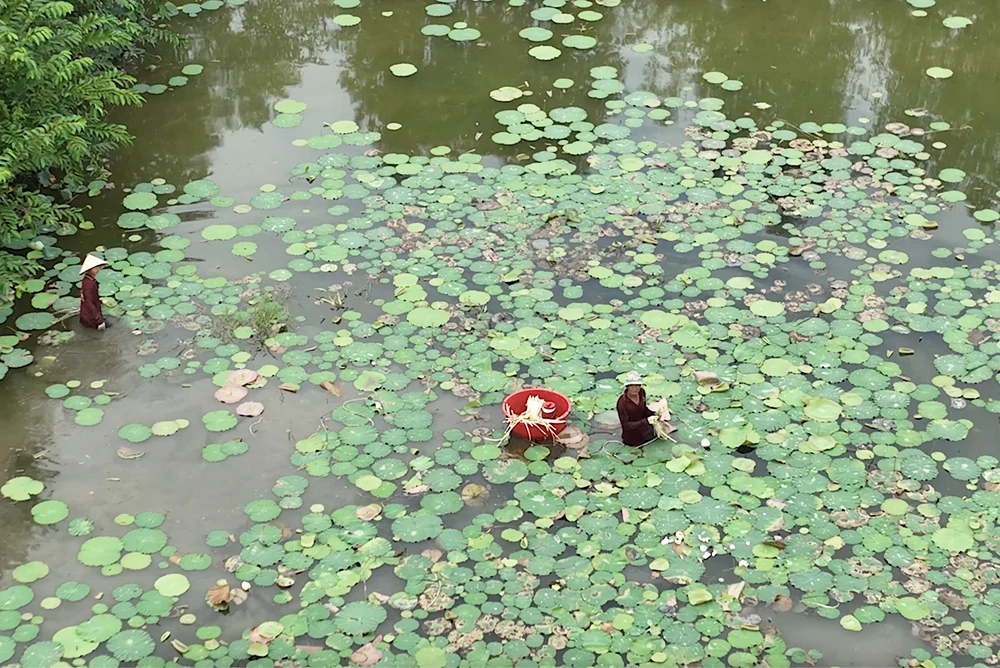
Growing lotus during the flood season in Long An Province is a traditional practice that helps locals increase their income. The lotus plant is gradually establishing itself as an important part of the agricultural economy in the Dong Thap Muoi region.
Tan Thanh District, located in the lowlands of Dong Thap Muoi, has unique natural conditions, including acidic soil and annual flooding. Lotus thrives in these conditions, making it a key source of income for thousands of local households. Many families have improved their livelihoods by harvesting lotus stems and seed pods, which are processed into various products.
Currently, several households in Tan Thanh District have joined forces to establish production facilities and cooperatives to process lotus stems and create lotus-based products.
The price of lotus stems now ranges from VND25,000 to VND30,000 per kilogram. Each hectare of lotus, grown for its seed pods, can bring in nearly VND40 million per season after expenses are deducted.
Tam Nga, a resident of Kien Binh Commune in Tan Thanh District, noted that the local soil and climate are well-suited for growing lotus. She mentioned that her family initially converted 1 hectare of rice fields to lotus and, after seeing the benefits, decided to switch all 3 hectares to lotus cultivation. Nga explained that after covering production costs, they earn over VND 100 million per season, which has significantly improved and stabilized her family’s financial situation in recent years.
Tan Thanh District is known for three OCOP (One Commune, One Product) certified lotus products, each rated three stars: Hai Nhon lotus seed powder, Hai Nhon lotus germ tea, and pickled lotus stems from Vua Sen Tam.
Lotus farming during the flood season not only boosts the local economy but also enhances the natural landscape, promoting eco-tourism. Visitors can enjoy the beauty of the lotus fields while participating in activities like rowing through the fields and learning about lotus farming.
Lotus also serves as a key ingredient in the region's river cuisine, featuring dishes such as grilled snakehead fish wrapped in young lotus leaves, chicken and lotus stem salad, lotus seed sticky rice, lotus sweet soup, and lotus seed milk.
Long An Province has nearly 1,000 hectares of land for lotus cultivation, with the largest area in Tan Thanh District (about 800 hectares), mainly in the communes of Nhon Ninh, Nhon Hoa, Tan Lap, Tan Binh, Kien Binh, and the town of Tan Thanh.
























